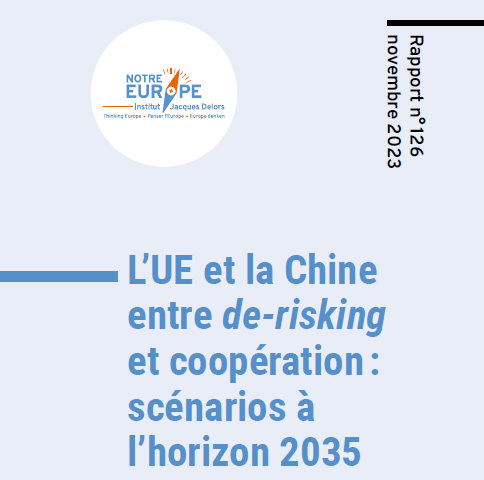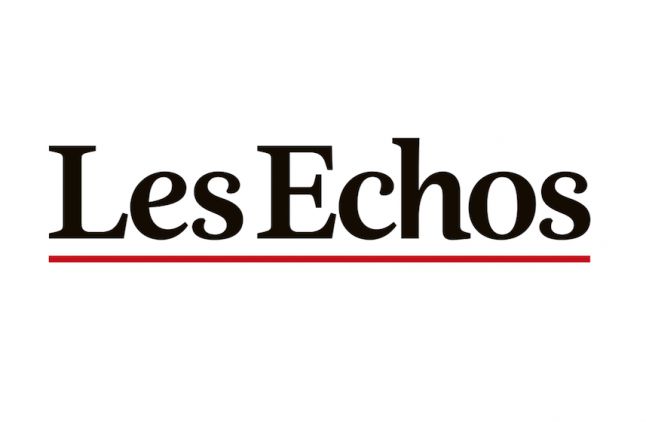L’Institut Jacques Delors est partenaire des Global trade series lancé par AIG et organisé en partenariat avec Chatham House, Georgetown Law Institute, l’Institut Clingendael, la National University of Singapore, la Fondation Bertelsmann et la CCI.
Cette série de conférences aura lien 2029 à Washington, Paris et Singapour afin d’engager un débat sur trois continents sur les nouveaux grands défis du commerce international.
Que peut-on attendre d’un commerce international à la fois plus fragmenté et plus intégré : éclatement ou réorganisation ? Les trois panels de cette conférence aborderont notamment : le risque de dé-tricotage des règles multilatérales, l’articulation du commerce et de la lutte contre le changement climatique et enfin l’avenir de l’Afrique dans le commerce mondial.
La conférence de Washington D.C. du 17 Mars accueillera notamment le Commissaire au Commerce Phil Hogan.
Les dates des conférences de Paris et Singapour ont été reportées à l’automne 2020.
Contact : Elvire Fabry, Chercheur senior à l’IJD, fabry@delorsinstitute.eu
Rupture or Reorder?
Where next for US trade policy, Europe and the Americas?
8:15 Registration & Coffee/Tea
8:40 Welcome: Darren Trigonoplos, Vice President & Head of Federal Government Affairs, AIG; Marie Kasperek, Chief Operating Officer, Director, Institute of International Economic Law
8:45 Opening Remarks: Rodrigo Yañez, Undersecretary of International Economic Relations, Chile
9:05 G2 Keynote Address: Phil Hogan, Commissioner for Trade, European Commission
Q&A Moderator: Chris Brummer, Faculty Director, Institute of International Economic Law; Agnes N. Williams, Research Professor; Professor of Law, Georgetown Law
9:55 Session 1: Boiling over or cooling down: transatlantic trade ties in an election year
How can a downward spiral in transatlantic trade ties be avoided and positive momentum be found? Is Europe taking a more muscular approach to trade, and what does it mean? Are the US and Europe moving in separate directions on international trade?
Moderator: Rem Korteweg, Senior Research Fellow, Clingendael Institute
Marjorie Chorlins, Senior Vice President for European Affairs, U.S. Chamber of Commerce
Duncan Edwards, Chief Executive Officer, British American Business
Daniel Mullaney, Assistant United States Trade Representative for Europe and the Middle East, Office of the United States Trade Representative
Rupert Schlegelmilch, Director, Neighbouring countries, USA and Canada, Directorate General for Trade, European Commission
10:50 Coffee/Tea break
11:00 Session 2: Trade and Politics: Is there a pathway to consensus on trade?
What is the role of trade in the US election campaigns? What can be learned from overwhelming Congressional support for USMCA? What to expect from the next four years?
Moderator: Ana Swanson, Journalist, New York Times
Beth Baltzan, Fellow, Open Markets Institute; former Democratic Counsel to the House Ways and Means Subcommittee
Chris Barnes, Cofounder, Center for Survey Research and Analysis, University of Connecticut; Managing Director, Financial Services Research Division, Escalent
Andreas Esche, Director, Programme Megatrends, Bertelsmann Foundation
Jennifer Hillman, Professor of Practice, Georgetown Law
12:00 Session 3: Talking about the neighbourhood: what is the future for trade in the Americas?
What are the trade priorities of Canada, Brazil and other states in the Americas? What do they expect from the United States? And is trade helping or hurting equality and economic convergence in the region?
Moderator: Marianne Schneider-Petsinger, Research Fellow, US and the Americas Programme, Chatham House
Earl Anthony Wayne, Former U.S. Ambassador to Mexico; Advisory Board Co-Chair, Mexico Institute, Wilson Center
Braz Baracuhy, Minister-Counsellor, Permanent Mission of Brazil to the World Trade Organization
Nadia Bourély, Minister-Counsellor (Economic and Trade Policy), Embassy of Canada to the United States
Rufus Yerxa, President, National Foreign Trade Council
13:00 Lunch
13:30 Session 4: The G2 Debrief: Has Trade “Changed”? A Look at New and Revised Treaty Provisions
« Trade Treaty Innovations under Trump »
What substantive treaty provisions have changed in the last four years, looking across all of the trade deals struck to date in the last four years (from USMCA, bilaterals with Korea, Japan and China, to demise of WTO AB as « WTO reform » etc.)? How meaningful are changes substantively and economically—and do they comprise new innovations in the practice of international trade law?
Moderator: Joost Pauwelyn, Professor of International Law, Graduate Institute of International and Development Studies; Visiting Professor at Georgetown Law
Kathleen Claussen, Associate Professor of Law, University of Miami School of Law; Senior Fellow, Georgetown Law’s Institute of International Economic Law
Jennifer Hillman, Professor from Practice, Georgetown Law
Simon Lester, Associate Director, Herbert A. Stiefel Center for Trade Policy Studies, Cato Institute
Clete Willems, Partner, Akin Gump; former Special Assistant to the President for International Trade, Investment, and Development, The White House
14:30 Ends
Rupture or Reorder?
Where next for US trade policy, Europe and the Americas?
8:15 Registration & Coffee/Tea
8:40 Welcome: Darren Trigonoplos, Vice President & Head of Federal Government Affairs, AIG; Marie Kasperek, Chief Operating Officer, Director, Institute of International Economic Law
8:45 Opening Remarks: Rodrigo Yañez, Undersecretary of International Economic Relations, Chile
9:05 G2 Keynote Address: Phil Hogan, Commissioner for Trade, European Commission
Q&A Moderator: Chris Brummer, Faculty Director, Institute of International Economic Law; Agnes N. Williams, Research Professor; Professor of Law, Georgetown Law
9:55 Session 1: Boiling over or cooling down: transatlantic trade ties in an election year
How can a downward spiral in transatlantic trade ties be avoided and positive momentum be found? Is Europe taking a more muscular approach to trade, and what does it mean? Are the US and Europe moving in separate directions on international trade?
Moderator: Rem Korteweg, Senior Research Fellow, Clingendael Institute
Marjorie Chorlins, Senior Vice President for European Affairs, U.S. Chamber of Commerce
Duncan Edwards, Chief Executive Officer, British American Business
Daniel Mullaney, Assistant United States Trade Representative for Europe and the Middle East, Office of the United States Trade Representative
Rupert Schlegelmilch, Director, Neighbouring countries, USA and Canada, Directorate General for Trade, European Commission
10:50 Coffee/Tea break
11:00 Session 2: Trade and Politics: Is there a pathway to consensus on trade?
What is the role of trade in the US election campaigns? What can be learned from overwhelming Congressional support for USMCA? What to expect from the next four years?
Moderator: Ana Swanson, Journalist, New York Times
Beth Baltzan, Fellow, Open Markets Institute; former Democratic Counsel to the House Ways and Means Subcommittee
Chris Barnes, Cofounder, Center for Survey Research and Analysis, University of Connecticut; Managing Director, Financial Services Research Division, Escalent
Andreas Esche, Director, Programme Megatrends, Bertelsmann Foundation
Jennifer Hillman, Professor of Practice, Georgetown Law
12:00 Session 3: Talking about the neighbourhood: what is the future for trade in the Americas?
What are the trade priorities of Canada, Brazil and other states in the Americas? What do they expect from the United States? And is trade helping or hurting equality and economic convergence in the region?
Moderator: Marianne Schneider-Petsinger, Research Fellow, US and the Americas Programme, Chatham House
Earl Anthony Wayne, Former U.S. Ambassador to Mexico; Advisory Board Co-Chair, Mexico Institute, Wilson Center
Braz Baracuhy, Minister-Counsellor, Permanent Mission of Brazil to the World Trade Organization
Nadia Bourély, Minister-Counsellor (Economic and Trade Policy), Embassy of Canada to the United States
Rufus Yerxa, President, National Foreign Trade Council
13:00 Lunch
13:30 Session 4: The G2 Debrief: Has Trade “Changed”? A Look at New and Revised Treaty Provisions
« Trade Treaty Innovations under Trump »
What substantive treaty provisions have changed in the last four years, looking across all of the trade deals struck to date in the last four years (from USMCA, bilaterals with Korea, Japan and China, to demise of WTO AB as « WTO reform » etc.)? How meaningful are changes substantively and economically—and do they comprise new innovations in the practice of international trade law?
Moderator: Joost Pauwelyn, Professor of International Law, Graduate Institute of International and Development Studies; Visiting Professor at Georgetown Law
Kathleen Claussen, Associate Professor of Law, University of Miami School of Law; Senior Fellow, Georgetown Law’s Institute of International Economic Law
Jennifer Hillman, Professor from Practice, Georgetown Law
Simon Lester, Associate Director, Herbert A. Stiefel Center for Trade Policy Studies, Cato Institute
Clete Willems, Partner, Akin Gump; former Special Assistant to the President for International Trade, Investment, and Development, The White House
14:30 Ends
USA
Washington
SUR LE MÊME THÈME
ON THE SAME THEME
PUBLICATIONS
L’art de l’accord de l’UE : élaborer une réponse unifiée aux menaces tarifaires de Trump

Harris vs. Trump sur la politique commerciale : Le bon, le mauvais ou juste le laid ?

L’UE et la Chine entre de-risking et coopération : scénarios à l’horizon 2035

MÉDIAS
MEDIAS
L’OMC, paralysée, joue son avenir à Genève

N.Gnesotto – « Quel impact de l’affaire des sous-marins australiens ? »

L’acier et l’aluminium réchauffent les relations transatlantiques

ÉVÉNEMENTS
EVENTS
Euroquestions | Relations UE-Chine : rivaux, concurrents, partenaires ?

Euroquestions | Quelle réponse européenne à la loi américaine sur la réduction de l’inflation (IRA) ? [EN]

Académie Notre Europe – L’Europe Commerciale et de la Défense

Euroquestions | Brexit : que peut-on encore espérer ?

WEBINAR | What do we need a World Trade Organization for?

WEBINAR | A European Border Carbon Adjustment proposal

AmCham Confidential

Strasbourg, 16 octobre 2019 – Vers un divorce États-Unis – Union européenne

Tunis, 3 mai 2019 — Les défis et les réponses de la Tunisie aux menaces pesant sur le multilatéralisme

Madrid, 10 avril 2019 – European Think Thank Summit

Paris, 10 janvier 2019 – L’UE et les nouvelles routes de la soie

3 décembre 2018 – Le Brexit est-il réversible ?

Bruxelles, 27 novembre 2018 – Journée de la politique commerciale européenne

Bordeaux, 23 novembre 2018 – La politique commerciale de l’UE : peut-on maîtriser la globalisation ?

Bruxelles, 16 octobre 2018 – La politique commerciale européenne en 2019 et au-delà

Paris, 15 octobre 2018 – L’UE deviendra-t-elle une puissance mondiale ?

Paris, 10 octobre 2018 – À quoi sert l’Europe ? Mythes et réalités

Paris, 3 octobre 2018 – Au-delà des guerres commerciales : du libre-échange au commerce équitable

Paris, 21 septembre 2018 – Trump, Brexit et les nouveaux défis de la politique commerciale européenne : la réponse européenne est-elle adaptée ?

Paris, 12 septembre 2018 – Présentation du livre « L’économie mondiale 2019 » du CEPII

Bruxelles, 22 juin 2018 – L’ordre mondial multipolaire, l’UE et le système multilatéral

Clichy, 19 juin 2018 – Comment faire de l’Europe la première puissance économique mondiale ?

Paris, 11 juin 2018 – Table ronde sur le Brexit

Bruxelles, 8 juin 2018 – La politique commerciale européenne dans un système commercial multilatéral en danger

Paris, 1er juin 2018 – La politique commerciale de l’Union européenne

Strovolos, 1 juin 2018 – Conférence économique annuelle : tirer profit de la mondialisation

Berlin, 28 mai 2018 – Sommet « Global Solutions »

Paris, 16 mai 2018 – Les marchés mondiaux

Paris, 24 avril 2018 – Trump, Brexit : la globalisation en crise ?

Paris, 12 avril 2018 – La France et l’Europe dans la mondialisation

Pékin, 11 avril 2018 – Le nouveau plan de réformes : le gouvernement contre le marché

Pékin, 11 avril 2018 – La réforme des entreprises publiques chinoises

Paris, 4 avril 2018 – Brexit : derniers mois de négociation

Pékin, 26 mars 2018 – Le monde va-t-il connaître une guerre commerciale ?

Pékin, 25 mars 2018 – Poursuivre l’ouverture sur tous les fronts

Pékin, 24 mars 2018 – Un nouvel agenda pour l’économie mondiale

Bruxelles, 23 février 2018 – CEPS Idea Lab

Genève, 19 février 2018 – Commerce : vents contraires ou Maelstrom?

Paris, 15 février 2018 – Les Controverses écologiques

La Haye, 25 janvier 2018 – Maîtriser la mondialisation : la politique commerciale européenne à l’ère Trump

Londres, 18 janvier 2018 – Lancement du Trade Knowledge Exchange

Bruxelles, 30 novembre 2017 – Le futur de la politique commerciale européenne

Paris, 22 novembre 2017 – Entre libre-échange et tentation protectionniste

Prague, 15 juin 2017 – Brexit : quelles options pour le commerce UE – Royaume Uni ?

Le Chesnay, 20 mai 2019 – Trump et l’avenir de la politique commerciale européenne

Bruxelles, 24 janvier 2017 – Le futur du commerce international

Paris, 14 décembre 2016 – Quel avenir pour le commerce international?

Pékin, 2 décembre 2016 – Les défis du commerce mondial

Bruxelles, 6 septembre 2016 – Nouvelle génération d’accords de libre-échange : quels défis pour l’avenir ?

Bruxelles, 6 septembre 2016 – UE – Chine : Vers une relation stratégique

Paris, 6 juillet 2016 – Le poids de l’Union dans les négociations commerciales internationales

Paris, le 5 juillet 2016 – TTIP et CETA aideront-ils les PME à entrer sur les marchés des USA et canadiens ?

Paris, le 14 juin 2016 – Le TTIP : un projet d’accord dangereux ou un partenariat pour l’avenir ?

















